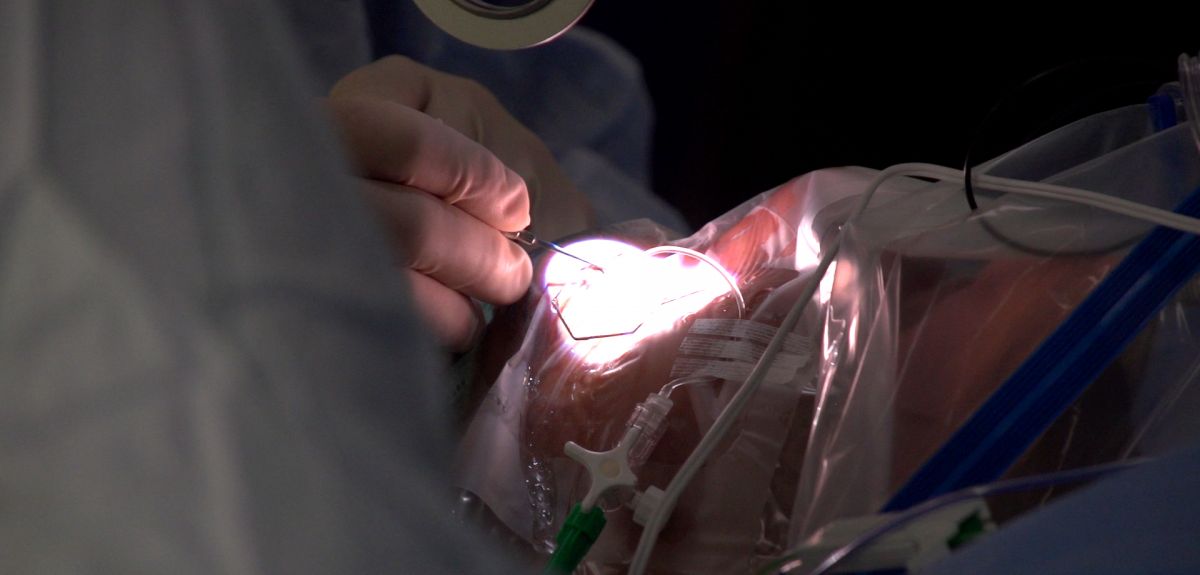
£12m investment to develop gene therapies for cause of blindness
Nightstar, a new spin-out company from the University of Oxford and its research commercialisation company Isis Innovation, is to receive a £12 million investment from Syncona, an independent subsidiary of the Wellcome Trust.
The company has been formed to develop and commercialise therapies for retinal dystrophies – degenerative conditions that affect vision.
The announcement follows promising results earlier this month from the first clinical trial of a gene therapy for an inherited form of progressive blindness called choroideremia.
The therapy was developed by Professor Robert MacLaren of Oxford University and colleagues, and uses a small modified virus called AAV.REP1 to deliver the correct version of the choroideremia (CHM) gene to cells in the retina of the eye.
The initial clinical results for choroideremia gene therapy are very promising and they give us an indication of what this technology can achieve in the future.
Professor Robert MacLaren
The medical journal The Lancet reported that, six months after treatment, the first six patients showed improvement in their vision in dim light and two of the six were able to read more lines on a standard eye chart.
The choroideremia gene therapy will be Nightstar’s first programme of work.
'The £12 million investment in Nightstar represents one of the largest investments in a new academic spin-out in Europe,' said Tom Hockaday, Managing Director of Isis Innovation.
Professor Robert MacLaren of Oxford's Nuffield Laboratory of Ophthalmology said: 'The initial clinical results for choroideremia gene therapy are very promising and they give us an indication of what this technology can achieve in the future.
'The involvement of Syncona through Nightstar will assist the clinical development, including the manufacture of AAV.REP1 to the stringent requirements needed for regulatory approval, which will expedite patients' access to the therapy,' he explained.
Choroideremia is a rare, inherited cause of blindness that affects approximately 1 in 50,000 people. It is caused by mutations to the CHM gene on the X chromosome and currently there is no effective treatment. The first symptom of the condition is usually an impairment of night vision which often occurs in early childhood. This is followed by progressive narrowing of the field of vision, as well as a decrease in the ability to see details, culminating in blindness in late adulthood.
The gene therapy for choroideremia is currently being studied in a 12 patient Phase I clinical trial, supported by the Health Innovation Challenge Fund, a partnership between the Wellcome Trust and the Department of Health.
The research has received additional support from the National Institute for Health Research (NIHR) Oxford Biomedical Research Centre and the charity Fight for Sight. Plans for an independent, grant-funded Phase II study are already underway.
Nightstar has an exclusive licence from Isis Innovation to the intellectual property which underpins this program.
Chris Hollowood, partner at Syncona and Nightstar’s Chairman, commented: 'The recent data publication in The Lancet is very compelling and we are delighted to be working with Professor MacLaren to provide the support required to bring this important therapy to choroideremia patients.'
Dr Melanie Lee has been appointed chief executive officer of Nightstar and further appointments to the team will be made over the coming weeks.
Dr Lee said: 'Nightstar provides a great opportunity to move AAV.REP1 along the regulatory path to product approval for choroideremia patients and the exceptional data from the work undertaken by Professor MacLaren and his team is a strong foundation upon which to realise the commercial potential of the therapy.'
 New study on Amazonia's fire crises urges action ahead of the next burning season
New study on Amazonia's fire crises urges action ahead of the next burning season
 New heart disease calculator could save lives by identifying high-risk patients missed by current tools
New heart disease calculator could save lives by identifying high-risk patients missed by current tools
 Modern Slavery and Human Rights Policy and Evidence Centre moves to Oxford University after receiving continuation funding
Modern Slavery and Human Rights Policy and Evidence Centre moves to Oxford University after receiving continuation funding
 Study shows that island bats are valuable allies for farmers
Study shows that island bats are valuable allies for farmers
 Study reveals how humanity could unite to address global challenges
Study reveals how humanity could unite to address global challenges
 Gene therapy trial shows promise for type of blindness
Gene therapy trial shows promise for type of blindness